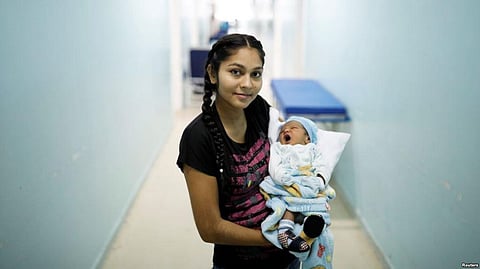Global life expectancy grew by 5.5 years between 2000 and 2016, the World Health Organization said Thursday, warning though that unequal income and access to healthcare translates into far shorter lives for many.
The U.N. health agency also stressed significant gender differences in life expectancy worldwide. On average, a child born in 2016 can expect to live 72 years, up from 66.5 in 2000, according to the annual World Health Statistics report.
The first 16 years of the century saw dramatic drops in deaths among children under five, especially in sub-Saharan Africa, where progress has been made against malaria, measles and other communicable diseases, WHO said.
Life expectancy has also increased thanks to advances against HIV/AIDS, which ravaged much of Africa in the 1990s.


